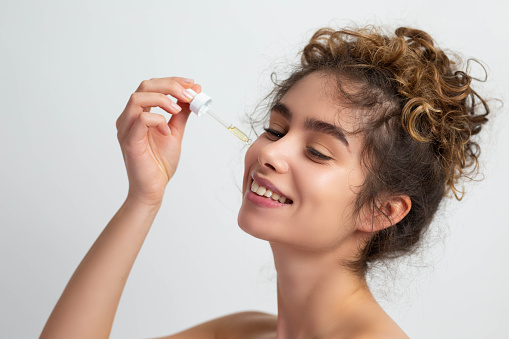Face serums are lightweight concoctions with active ingredients that you may apply directly to your skin. Not thicker like the moisturizers available in the market, they are gel-based, liquid, or clear. Face serums can nourish, hydrate, and protect your skin from hyperpigmentation, wrinkles, redness, acne, sensitivity, and clogged pores. The following write-up specifies the right age to use face serums along with other information. Please check it out now.
When Should You Start Using Face Serums?
The experts working for Dior Beauty said serums can trigger cell metabolism to the greatest extent, which helps skin look youthful for a prolonged period. The right age to start using face serums is the early 30s or late 20s. That’s when the signs of aging appear. You can keep using serums till the age of 50.
Face serum can be used at night as well as during the day. Wash your face with a mild cleanser and pat it dry. If you plan on applying the serum at night, do not layer it excessively. Night creams can form a heavy layer. So, you must either apply a cream or a serum.
How to Make the Most Out of Face Serums?
1) Apply on Damp Skin – Apply the serum when your skin is damp since moisture allows easy penetration. But if you have sensitive skin, you should allow the skin to dry prior to using a serum. Doing so slows down the penetration of serums, which will decrease irritation.
2) Know that Less is More – Never apply a large amount of face serum as they contain powerful ingredients. Applying too much of the serum can unfortunately irritate the skin.
3) Cleanse First – The ingredients in the serums can stick to dead skin cells and dirt. If you want the serum to get absorbed in a seamless manner, please cleanse your face first. Use lukewarm water only. Hot water can cause sweating thus limiting absorption. Cold water, on the other hand, can close pores and would not let the benefits of the serum reach your skin.
How to Use Face Serums?
You should apply face serum twice a day – once in the morning after washing your face and once at night before using a moisturizer.
1) Take a little serum you like. It is better to purchase face serums that come with a dropper. You can regulate the quantity. Add two drops or more if needed.
2) Spread the serum evenly between your palms.
3) Dab the serum throughout your face and neck in gentle motions.
4) Wait for a couple of minutes. Allow the serum to get absorbed by your skin.
5) Continue with the rest of the steps in your skincare regimen.
Which is the Best Face Serum?
According to the professionals at Dior Beauty, it is best if you can get a serum that is compatible with your skin.
1) Do you have acne? If yes, please look for face serums with Vitamin C that escalates collagen production, zinc that soothes irritated skin, retinol that reduces swelling, and salicylic acid that unclogs the pores.
2) Now what should you do if you have dry skin? Go for face serums with glycolic acid that exfoliates lightly, hyaluronic acid that preserves moisture, and Vitamin E that protects skin cells from oxidation.
3) To help your dull skin, please use face serums with antioxidants such as green tea extract. It can successfully fight the free radicals.
4) Do you have normal skin? Well then, choose face serums with glycolic acid. These serums can trap moisture in the skin and help it feel rejuvenated.
How Long Does It Takes Face Serums to Work?
Face serums have active ingredients in concentrated quantities. To see the desired outcome, you must select the right kind of serum. Generally, all face serums take approximately four to six weeks to work. You have to wait that long if you want your skin to feel smooth, plump, and firm, and if you want to witness lesser scars and spots.
Face serums can help your skin in so many ways. Use this exceptional elixir to achieve spotless skin. There are plenty of choices of serum so opt for the one based on your skin requirements and type. If you aren’t sure which face serum to use, please schedule an appointment with a dermatologist.

